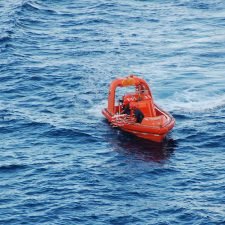Vicarious liability is a concept that is firmly rooted in all legal systems. In the most simplistic terms, the idea is that the relationship between a company and an individual (or another company) is such that they should be responsible for any negligence committed by that individual and/or company. To use a common example, an employer is liable for the negligence of its employee, such as in the case of a traffic accident caused while an employee is on the job driving a company vehicle.
As with all things, however, the laws pertaining to offshore injuries, the Jones Act specifically, are not always so simple. So, how does the Jones Act handle the concept of vicarious liability?
Operational Control as a Basis for Liability

It is a general concept of maritime law and under the Jones Act that a principal (such as a Jones Act employer) may be liable for the negligence of an independent contractor. Under this concept, a Jones Act employer is liable for the negligence of a contractor if it retains control over the actions of the contractor or expressly or impliedly authorized the acts of a contractor.
As you can imagine, an analysis of operational control is incredibly fact specific with each case being different than the one before it. However, even in a situation where there is no operational control over a contractor’s actions, a Jones Act employer may still be liable for their negligence based upon the language of the Jones Act itself.
Liability Under the Language of the Jones Act Itself
The statement that is often repeated by courts confronted with this issue is that shipowner is liable “for the injuries negligently inflicted on its employees by its ‘officers, agents, or employees.’ Obviously employees and officers are easy to identify but what about “agents”? As courts have explained, the word “agents” is given “an accommodating scope,” requiring only that the “employee’s injury [be] caused in whole or in part by the fault of others performing, under contract, operational activities of his employer.”
This creates a two-part test for determining whether a Jones Act employer should be liable, per the terms of the statute, for the negligence of a company working for it: (1) is that company under contract to the Jones Act employer and (2) is that contract to perform “operational activities” of the Jones Act employer?
The first question is simple. It does not take a great deal of analysis to determine whether there is an agreement between the companies, as this is often the case with companies working together offshore.
The second question is where things can get a little bit complicated. There is no hard and fast rule of what constitutes “operational activities” but there are a number of cases, all interpreted through the “accommodating scope” that courts apply, that give guidance on how this test should be applied.
For example, in Hopson v. Texaco, Inc., the Supreme Court held that a Jones Act employer was liable for the negligence of a taxi driver who got in an accident while transporting ill seamen to the United States Consul’s office in a foreign country. The rationale was that the only way to get these seamen the treatment they needed was to have them processed through the Consul’s office and the utilization of the taxi company was the way the company typically transported employees.
Similarly, in Sanders v. Diamond Offshore Drilling, Inc., Judge Vance found that a Jones Act employer was liable for the negligence of the catering contractor being used on its vessel. As she explained, “daily and routine running of a cafeteria is … an operational activity necessary to the functioning of a rig.”
Cole v. Oceaneering, a recent decision obtained for a client of The Mahone Firm, provides yet another example of how courts will answer questions concerning vicarious liability under the Jones Act. In the Cole case, the Jones Act employer hired a company to provide medical services onboard its vessels, which consisted of an onboard medic and an onshore doctor available to the medic for oversight. Judge Vitter ultimately determined that the Jones Act employer owed a non-delegable duty to provide prompt and adequate medical care to its seamen and when it has an agent fulfill that duty, it is liable for the agent’s negligence.
To be clear, these are just a handful of examples of where an agent will be deemed to be performing operational activities of the Jones Act employer under contract to the Jones Act employer. There are almost endless relationships amongst companies working offshore that could similarly give rise to liability and it is virtually impossible to establish any clear rule as to which situations will give rise to liability and which will not.
Contact an Offshore Injury Attorney
If you have been injured while working offshore or on the river, The Mahone Firm is here to help you through this incredibly difficult process. Call (504) 564-7342 to discuss your case with an offshore injury lawyer today. There is no fee for a consultation.






